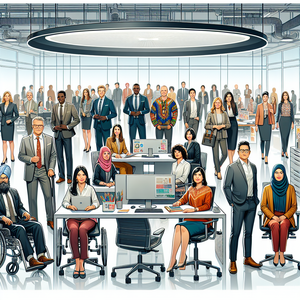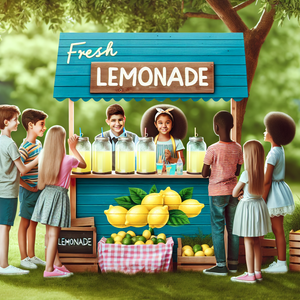
Top 20 DEI Careers Transforming Workplaces in 2025: Roles Driving Diversity, Equity, and Inclusion
Diversity, Equity, and Inclusion (DEI) are no longer just buzzwords—they are essential components of thriving, equitable, and innovative workplaces. As businesses navigate the complexities of today’s global landscape, DEI has evolved into a strategic advantage, bolstering innovation, employee satisfaction, and financial performance. McKinsey research, for example, highlights that organizations with diverse leadership teams are 35% more likely to outperform their competitors financially. While some organizations are trailblazers in embedding DEI into their core operations, others are just beginning to understand its transformative potential. This growing field is not without its challenges, such as resource limitations and resistance to change, but it is also ripe with opportunity. Skilled professionals who can implement actionable strategies and foster inclusion are in high demand, making DEI careers a valuable pathway for those passionate about creating change. In this article, we explore 20 DEI-focused careers shaping workplaces in 2025. From high-level strategists to hands-on specialists, these roles are vital in fostering inclusive cultures and driving systemic progress. Whether you're an experienced DEI leader or someone exploring this field for the first time, these roles highlight the diverse ways you can make a meaningful impact.
Job Summaries:
Chief Diversity, Equity, and Inclusion Officer (CDEIO):
- As the executive leader for DEI strategy, the CDEIO ensures that diversity initiatives align with organizational goals.
- This role involves crafting comprehensive DEI frameworks, overseeing recruitment strategies, and championing supplier diversity.
- For example, a CDEIO might spearhead an initiative to ensure gender parity at all levels of leadership within a company.
- Qualifications often include advanced degrees in business or social sciences and extensive experience in diversity leadership.
DEI Program Manager:
- DEI Program Managers handle the day-to-day execution of diversity initiatives, such as workshops, training programs, and Employee Resource Groups (ERGs).
- Strong project management skills are essential, as is the ability to assess the effectiveness of these programs.
- A notable example might include launching mentorship programs to support underrepresented employees.
- Bachelor’s degrees in organizational development or HR are common prerequisites.
Diversity Recruitment Specialist:
- These specialists focus on creating inclusive hiring practices and eliminating bias from recruitment processes.
- They work closely with hiring managers to ensure job descriptions and interview protocols reflect DEI principles.
- For instance, a Diversity Recruitment Specialist might implement blind résumé reviews to reduce unconscious bias.
- Proficiency in applicant tracking systems and talent acquisition is crucial.
Equity and Inclusion Consultant:
- External consultants provide targeted DEI expertise, conducting workplace audits, designing training sessions, and recommending systemic improvements.
- An Equity and Inclusion Consultant might, for example, analyze pay equity across departments and propose corrective measures.
- Strong analytical skills and DEI certifications are often required.
DEI Data Analyst:
- DEI Data Analysts use data to measure the impact of diversity initiatives.
- They develop dashboards, track key performance indicators, and provide actionable insights to leadership.
- A DEI Data Analyst might uncover trends in employee retention rates that disproportionately affect underrepresented groups and suggest targeted interventions.
- Proficiency in data visualization tools like Tableau is highly valued.
Employee Resource Group (ERG) Coordinator:
- ERGs are pivotal in fostering community and belonging within organizations.
- ERG Coordinators ensure these groups have the resources they need to thrive, from managing budgets to aligning activities with business goals.
- For example, an ERG Coordinator might organize a panel discussion for Black History Month in collaboration with the Black Professionals ERG.
- Strong organizational skills are essential.
DEI Training Specialist:
- Training Specialists design and deliver workshops on topics like cultural competence and unconscious bias.
- They play a key role in building awareness and fostering behavioral change.
- For instance, they might create a training module to help managers recognize microaggressions in the workplace.
- A background in instructional design or adult education is often required.
Inclusive Marketing Strategist:
- Inclusive Marketing Strategists ensure that branding and campaigns resonate with diverse audiences.
- One example is revamping a company’s holiday marketing to reflect the traditions of various cultures.
- A degree in marketing or communications, alongside expertise in multicultural marketing, is typically required.
Belonging and Wellness Specialist:
- This emerging role focuses on mental health and fostering a sense of belonging among employees, particularly those from underrepresented backgrounds.
- For example, a Belonging and Wellness Specialist might create support groups for LGBTQ+ employees navigating workplace challenges.
- A background in psychology or social work is often preferred.
DEI Policy Advisor:
- Policy Advisors ensure that workplace policies promote equity and inclusion.
- They may review pay structures, parental leave policies, or workplace accommodations to identify disparities.
- For instance, a Policy Advisor might recommend expanding paid family leave to better support working parents.
- Expertise in employment law or policy analysis is key.
Cultural Competence Trainer:
- Cultural Competence Trainers help employees navigate global workplace dynamics.
- They design programs that address cultural differences in communication and work styles.
- For example, a trainer might prepare a team for collaborating with international colleagues.
- A degree in sociology or intercultural studies is often required.
DEI Communications Specialist:
- This role is responsible for crafting internal and external messaging that aligns with an organization’s DEI goals.
- From newsletters to social media campaigns, the Communications Specialist ensures consistent narratives.
- A strong example might include creating a video series showcasing employees’ diverse stories.
- Strong writing and PR skills are essential.
DEI Metrics and Reporting Specialist:
- Metrics Specialists track the progress of DEI initiatives using data.
- They set benchmarks, analyze trends, and inform leadership decisions.
- For instance, they might report on the success of diversity-focused hiring campaigns.
- A background in statistics or business analytics is critical.
Diversity Events Coordinator:
- Planning and executing DEI-focused events, such as cultural celebrations or educational workshops.
- Organizing an Indigenous Peoples’ Day event, complete with guest speakers and traditional cuisine.
- Strong event planning skills are essential.
Inclusion Advocate:
- Inclusion Advocates mediate workplace conflicts and promote practices that foster inclusion.
- They often work directly with employees to address concerns related to discrimination or bias.
- They might facilitate conversations around racial equity following a workplace incident.
- Emotional intelligence and conflict resolution skills are key.
Accessibility Specialist:
- Accessibility Specialists ensure that workplaces are inclusive for individuals with disabilities.
- This could include auditing digital platforms for accessibility or advising on workplace accommodations.
- Expertise in ADA compliance and assistive technologies is crucial.
Supplier Diversity Manager:
- Supplier Diversity Managers work to include minority-owned businesses in procurement processes.
- They might develop partnerships with local Black-owned businesses to supply office materials.
- A background in procurement or supply chain management is often required.
Inclusive Leadership Coach:
- These coaches work with executives to foster inclusive leadership practices.
- They may design programs to help leaders recognize their biases and create equitable team environments.
- For example, they might conduct workshops on decision-making through a DEI lens.
Social Impact Strategist:
- Social Impact Strategists align company goals with broader community needs, such as economic empowerment or education initiatives.
- They might partner with local schools to create STEM opportunities for underrepresented students.
- A background in corporate social responsibility or public policy is preferred.
DEI Researcher:
- Researchers explore trends and best practices in DEI, providing thought leadership that shapes organizational strategies.
- They might publish a report on the impact of remote work on employees from diverse backgrounds.
- Strong research skills and advanced degrees in relevant fields are often required.
The demand for DEI professionals continues to grow as organizations recognize the value of inclusion in driving innovation, employee engagement, and societal progress. These 20 roles highlight the diverse opportunities available for those passionate about making a difference. By pursuing relevant certifications, networking with industry leaders, and staying informed about emerging trends, you can position yourself for a successful career in this dynamic field. Whether you’re drawn to data analysis, leadership coaching, or community impact, the future of DEI offers countless ways to contribute to a more equitable world. Together, we can build workplaces where everyone feels valued, respected, and empowered.
Explore More Jobs

